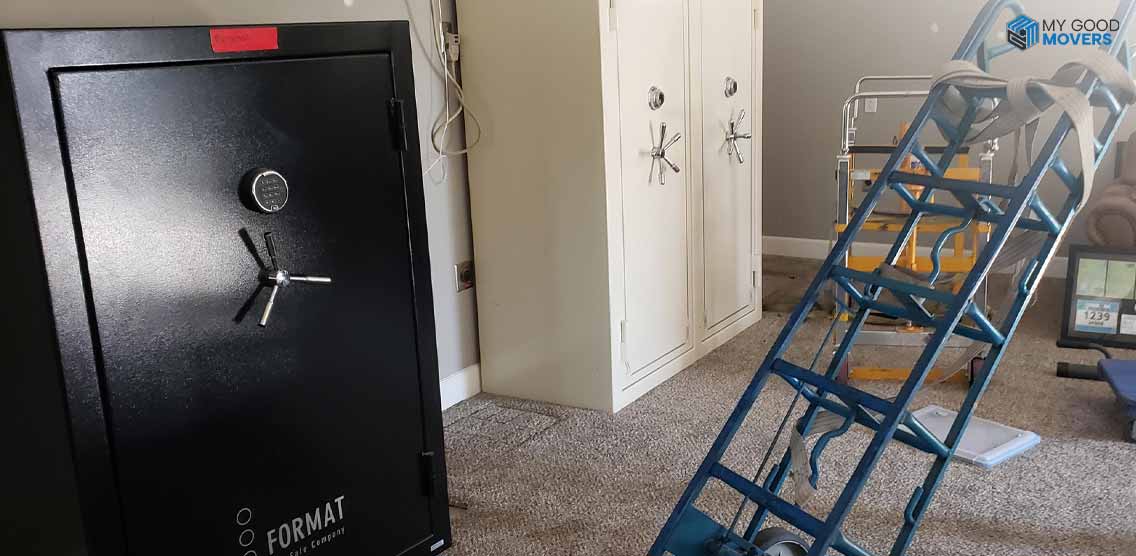Failing to plan is planning to fail.
This saying couldn’t be more accurate when it comes to moving.
Whether you are relocating across town or cross-country, having a moving company contract in place is essential.
Without a well-structured agreement, you risk unexpected charges, damaged belongings, or even no-shows on moving days.
In fact, the American Moving and Storage Association reports that about 35% of moves face some form of complication due to a lack of clear terms and conditions.
This is why understanding what goes into a moving company contract is crucial.
Now, you might be wondering: "Why is it so important?"
Well, think of it this way: Moving is a major undertaking, and the average cost of an interstate move in the U.S. is around $4,300, according to industry data.
With that much money on the line, wouldn’t you want every detail outlined in black and white?
A moving contract acts as a safeguard, making sure that both you and the movers are on the same page.
It includes the services, the costs, and what happens if things don't go as planned.
For example, did you know that 70% of people who move report stress as the most significant factor in the process?
It's often because they didn't fully understand their signed moving services agreement.
By knowing the ins and outs of this document, you can mitigate many of these stressors.
Key Elements of a Moving Company Contract
The typical components of a moving company contract include several vital details.
Description of Services
This section specifies the services provided by the moving company, such as packing, loading, transportation, unloading, and any additional.
It also lists the pickup and delivery locations.
It's crucial to check that all services you expect are mentioned here; otherwise, they might not be covered.
Scope of Services
Think of this as a timeline detailing each step of the move.
For example, it might outline when the movers will arrive, how they will inventory and load your belongings, and what is required from you.
Types of Estimates
Binding Estimates: This type guarantees the total cost of the move based on the initial agreement.
Even if the actual weight or volume exceeds the estimate, the price remains fixed unless you alter the service details.
Non-Binding Estimates: The final cost may vary based on the actual weight or services provided in this arrangement.
According to regulations, however, the final cost should not exceed 110% of the original estimate.
Liability and Insurance Coverage
The contract should explain the company's liability for lost or damaged items.
Options typically include full-value replacement coverage or released-value protection (usually set at around $0.60 per pound).
This is an area to consider carefully, especially for high-value items.
Payment Terms
This section details when and how you are expected to pay.
It can include options like credit cards, checks, or cash.
Be wary of contracts demanding full payment upfront.
Reputable companies often offer staggered payments.
Additional Fees
The contract should clearly outline potential additional fees, such as accessorial charges.
These fees might apply if the movers face unforeseen obstacles like restricted parking or long-carry scenarios.
Cancellation and Rescheduling Policies
It is crucial to review the policies regarding cancellations and changes.
The contract should specify penalties or fees for canceling the move or rescheduling to another date.
If you know all these details, it can help you avoid unexpected costs later.
Bill of Lading
On the day of the move, you will receive a bill of lading and a copy of the contract, which serves as a receipt for services.
Keep this document safe as it contains the agreed terms and acts as proof of the services rendered.
Why is a Moving Company Contract Important?
A well-structured moving company contract helps protect your interests by clarifying and establishing legal obligations for both parties.
It minimizes the risks of hidden charges, service delays, or damages to your belongings.
If disputes arise, a solid contract provides a legal basis for resolution.
Common Pitfalls to Avoid
Vague Language or Blank Spaces
Never sign a contract that has vague terms or incomplete sections.
Make sure everything is written in clear, understandable language.
If there are any ambiguous terms, ask for clarification or insist on revisions before signing.
Unrealistic Guarantees
Beware of contracts that promise guaranteed delivery times or no damage claims without exceptions.
Moving inherently involves certain risks, and reputable companies will set realistic expectations instead of making overly optimistic promises.
Lack of a Detailed Inventory
Always make sure that the contract includes a detailed inventory list of items being moved.
This list acts as a reference for what is loaded and unloaded.
It helps you verify everything arrives in the same condition.













































































































































 (239) 799–6077
(239) 799–6077